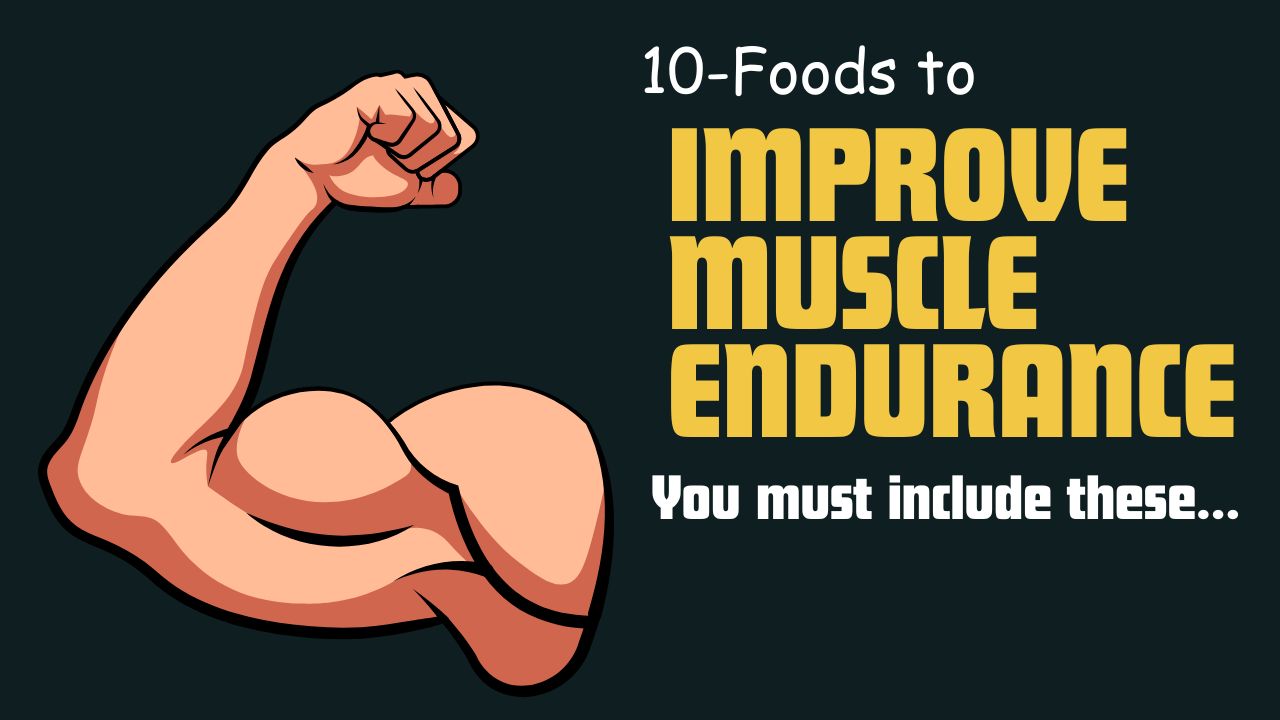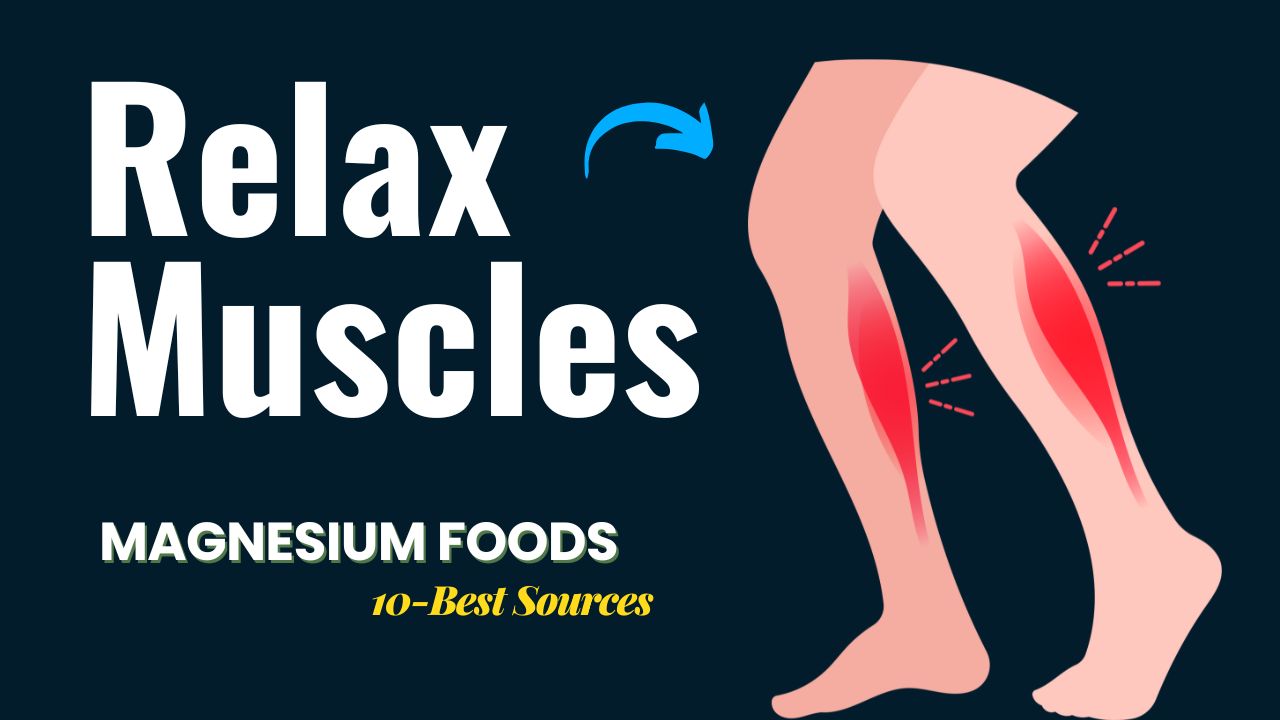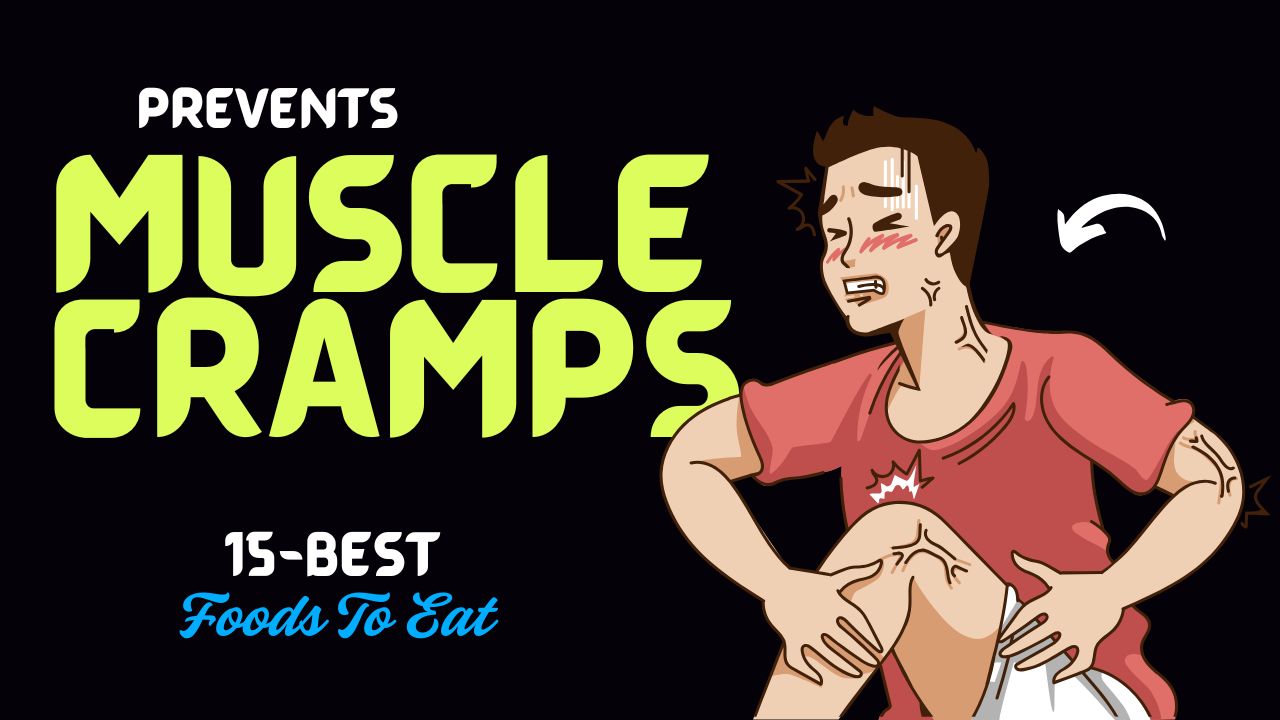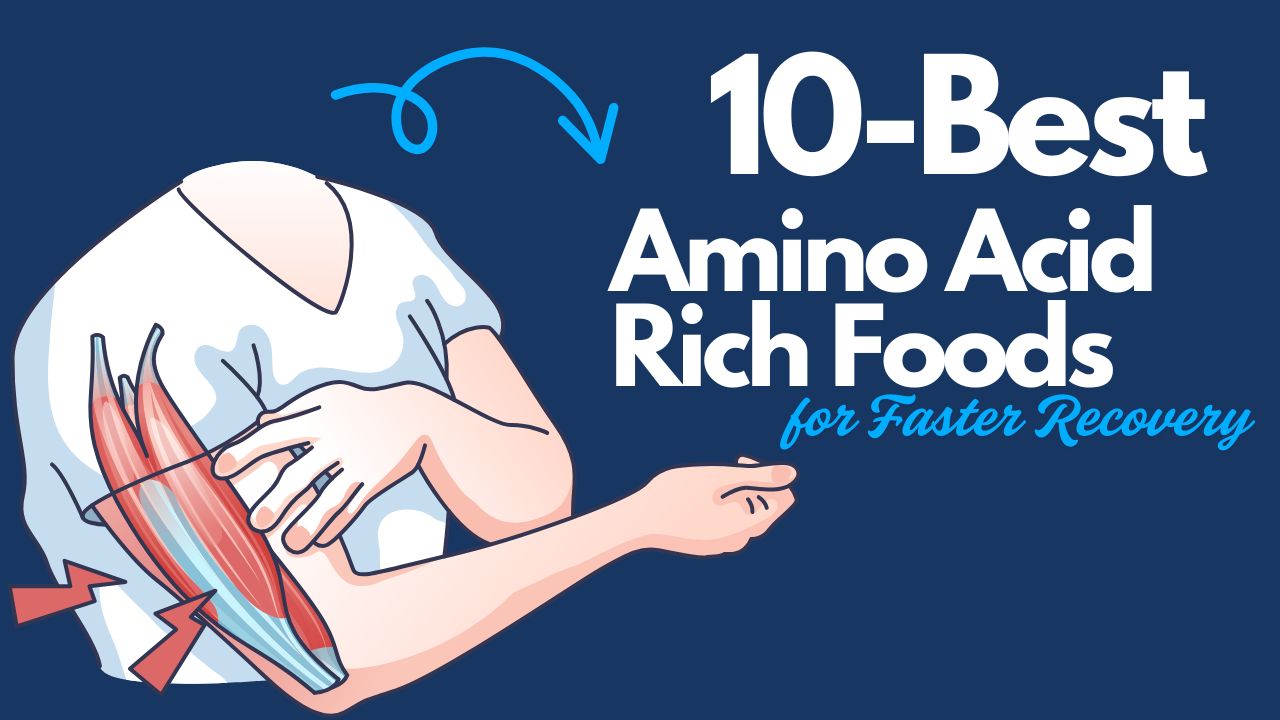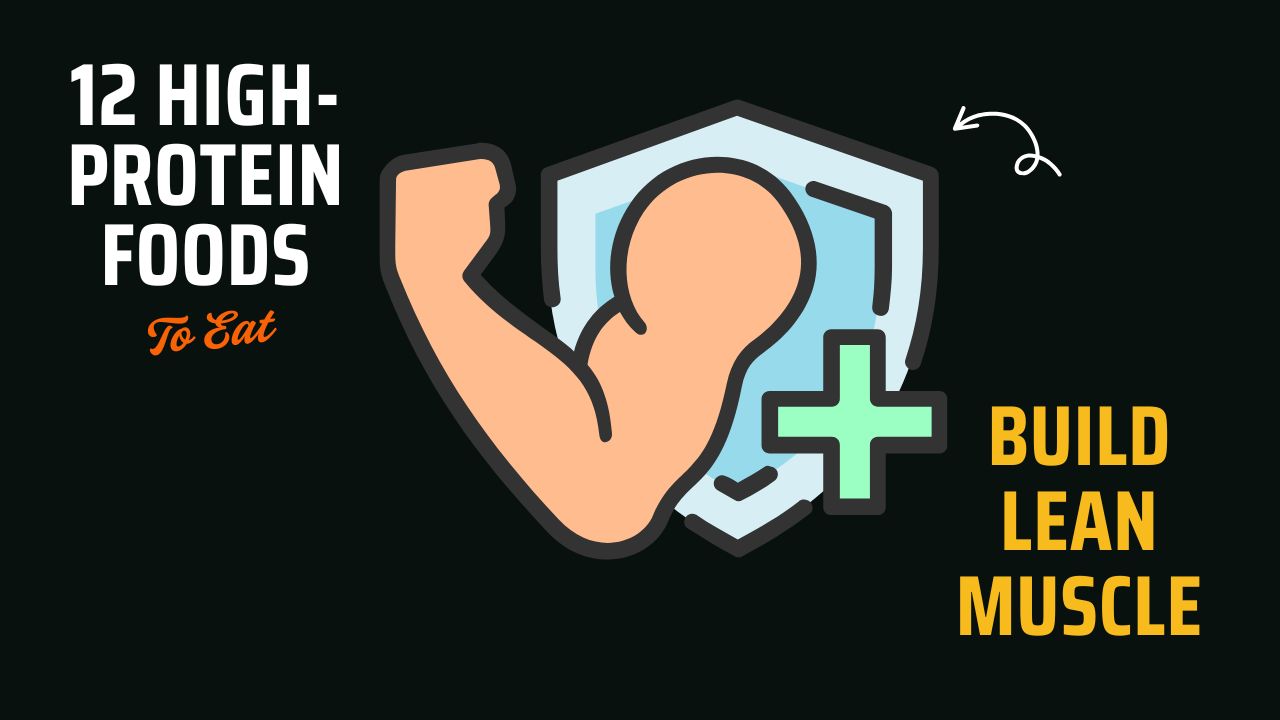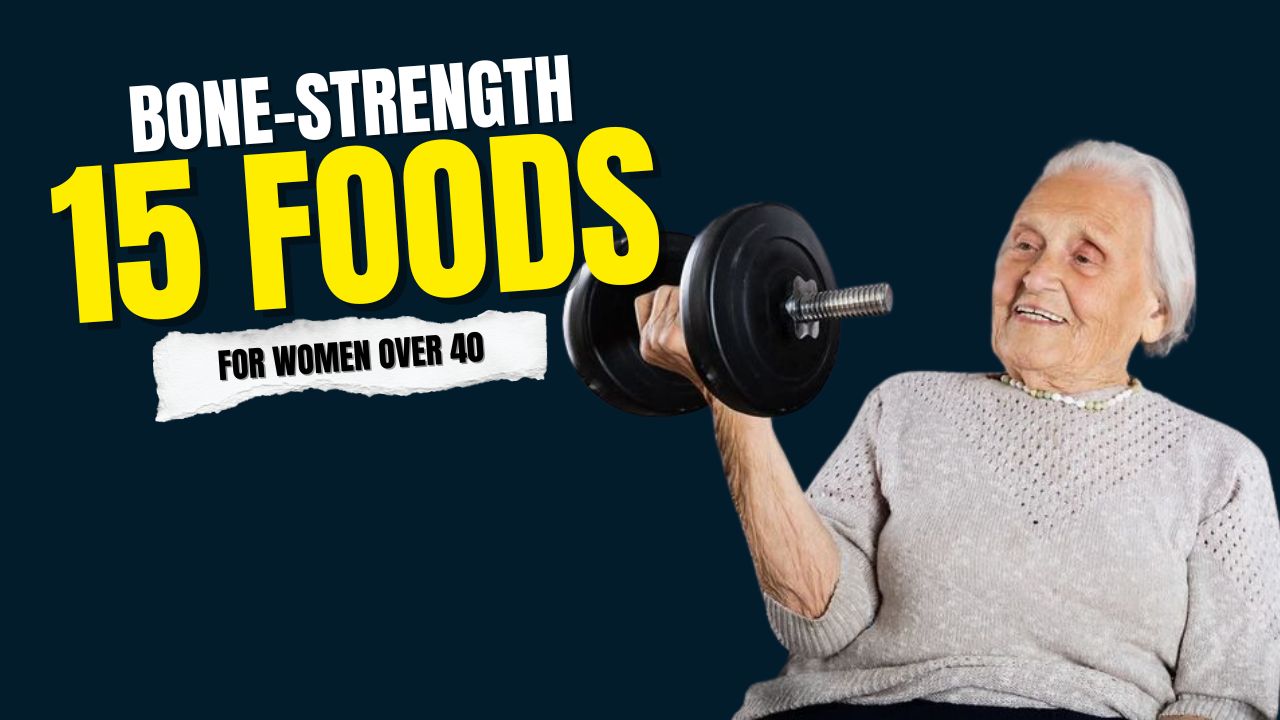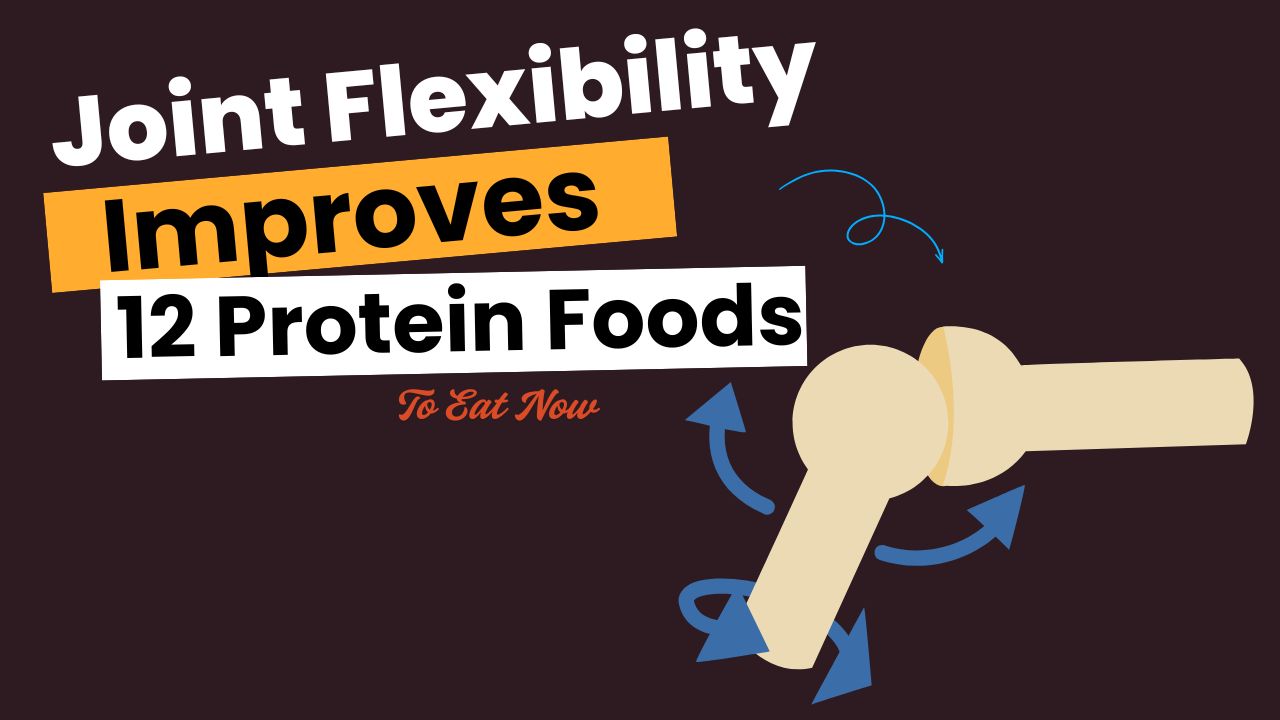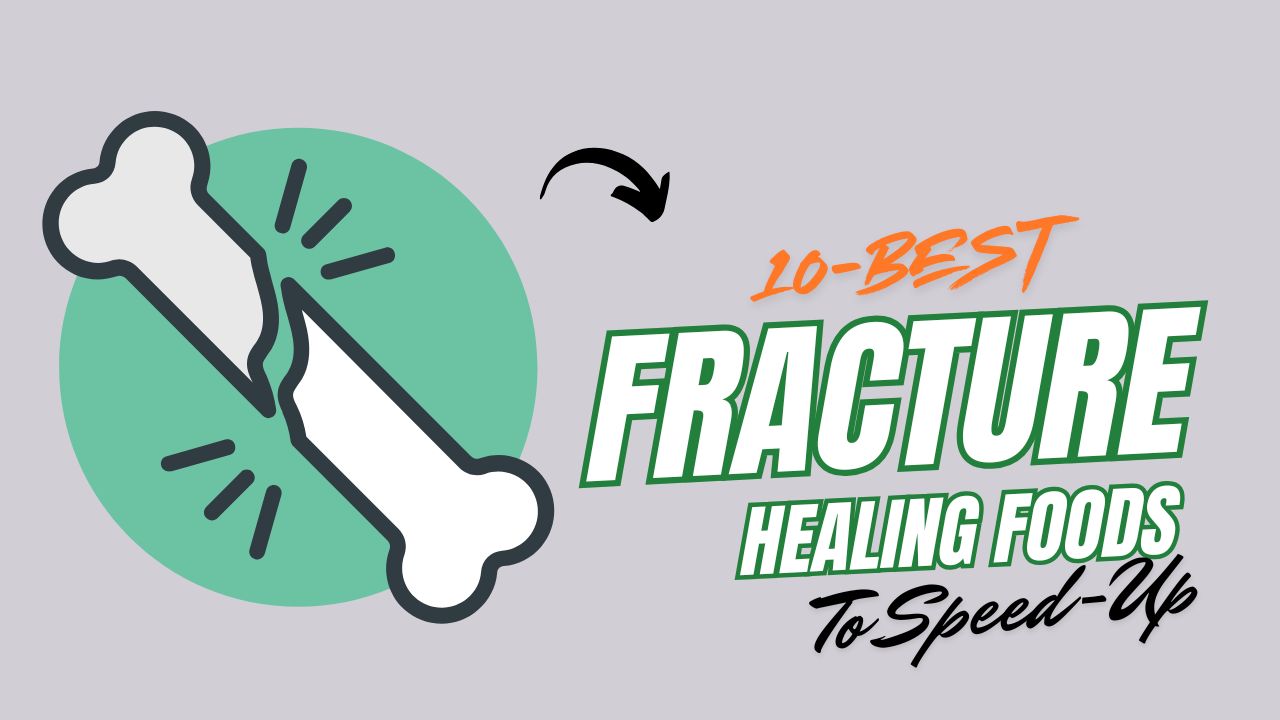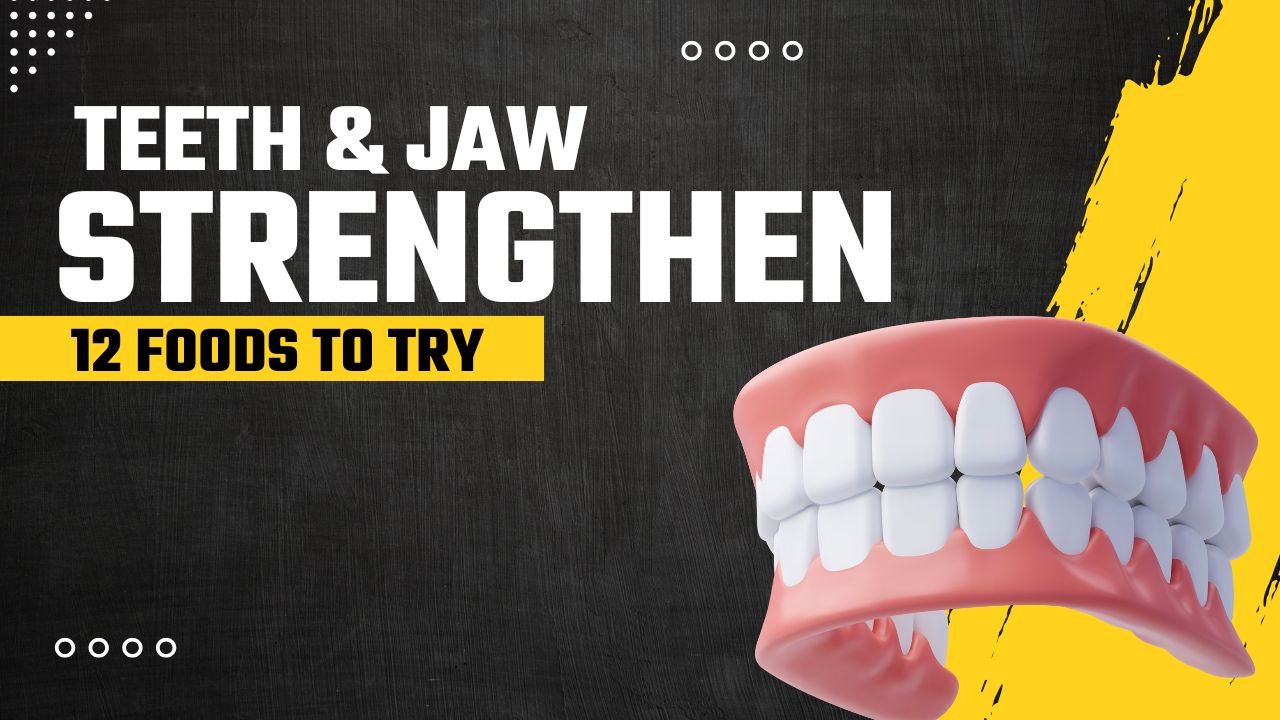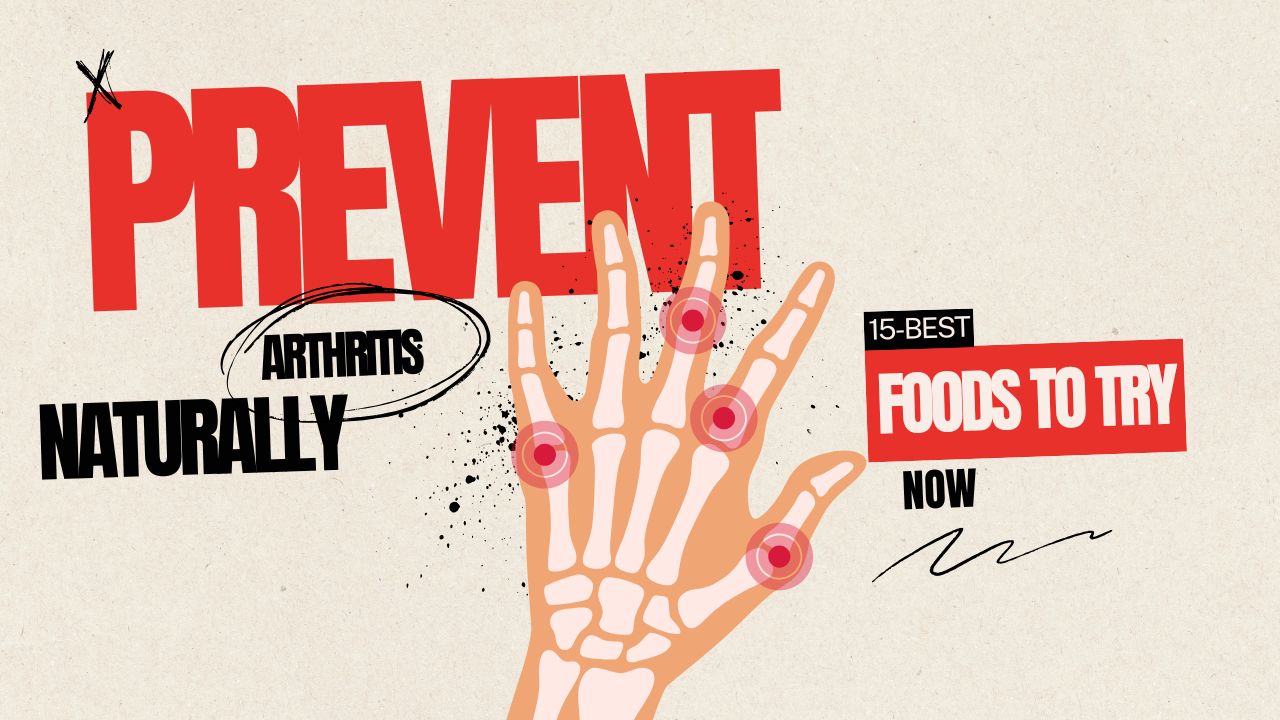Did you know that your teeth are just as alive as your bones? They need vitamins, minerals, and the right kind of fuel to stay strong.
Yet, most people believe brushing and flossing alone are enough to maintain oral health. While hygiene is essential, your diet plays an even bigger role in keeping your teeth resilient and your jawbone strong.
Think about it: every time you chew, your teeth and jawbone are put to work. Without the right nutrients, they weaken, making you prone to cavities, sensitivity, and even bone loss around the jaw.
The good news? Nature has already provided us with foods that are powerful allies in strengthening enamel, protecting gums, and enhancing jaw density.
In this guide, we’ll explore 12 powerful foods that support teeth and jaw health, along with:
- Best ways to eat or use them
- Who should eat or avoid them
- Smart storage and buying tips
- Quick do’s & don’ts
- Possible side effects
Let’s dive in and discover how to build a stronger, healthier smile from the inside out.
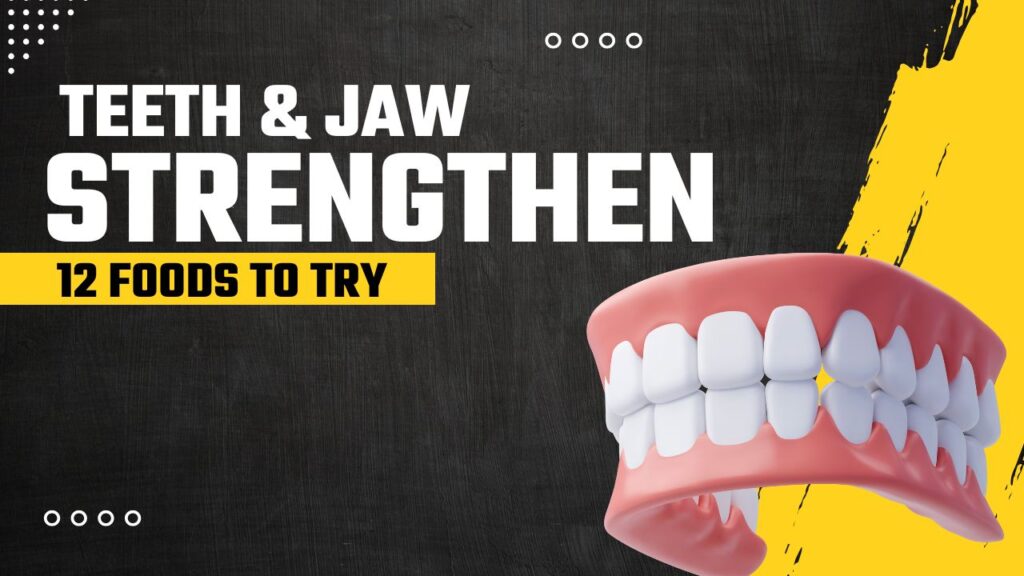
Table of Contents
12 Best Foods For Teeth & Jaw Strengthening
1. Dairy Products (Milk, Yogurt, Cheese)
Rich in calcium, phosphorus, and casein protein, dairy products are essential for enamel remineralization and jawbone density. Cheese, in particular, also increases saliva production, which helps neutralize acid in the mouth.
Best Ways to Eat or Use It
- Drink a glass of milk daily.
- Enjoy unsweetened yogurt with fruits.
- Snack on a small cube of cheese after meals to protect enamel.
Who Should Eat / Avoid
- Good for: Children, teenagers, pregnant women, and seniors for bone strength.
- Avoid/Limit if: You’re lactose intolerant or allergic to dairy.
Storage & Buying Tips
- Choose fresh, organic dairy when possible.
- Store milk and yogurt in the fridge (below 4°C).
- Hard cheeses last longer if wrapped in wax paper.
Do’s & Don’ts
| ✅ Do | ❌ Don’t |
|---|---|
| Opt for low-sugar yogurt | Rely on flavored dairy with added sugars |
| Combine with fruits or nuts | Store at room temperature |
Possible Side Effects
Excessive dairy may cause digestive discomfort in those with lactose intolerance.
2. Leafy Greens (Spinach, Kale, Collard Greens)
These vegetables are packed with calcium, folic acid, and vitamin K — all essential for gum and jawbone health. They also contain antioxidants that fight inflammation.
Best Ways to Eat or Use It
- Add raw spinach to salads.
- Blend kale into smoothies.
- Lightly steam collard greens for better absorption.
Who Should Eat / Avoid
- Good for: Women (especially during pregnancy) and people with gum sensitivity.
- Avoid/Limit if: You have kidney stones (due to oxalates).
Storage & Buying Tips
- Buy crisp, dark-green leaves.
- Wrap in a damp paper towel and store in the fridge.
Do’s & Don’ts
| ✅ Do | ❌ Don’t |
|---|---|
| Wash thoroughly before eating | Let greens wilt in storage |
| Steam to reduce oxalates | Overcook until mushy |
Possible Side Effects
Too much raw spinach can interfere with calcium absorption due to oxalates.
3. Fatty Fish (Salmon, Mackerel, Sardines)
Loaded with vitamin D and omega-3 fatty acids, fatty fish help the body absorb calcium more effectively while reducing inflammation in gums. Sardines also provide natural fluoride for enamel protection.
Best Ways to Eat or Use It
- Grill salmon with lemon.
- Add sardines to salads.
- Try mackerel in fish curries.
Who Should Eat / Avoid
- Good for: People at risk of osteoporosis, children in growth years.
- Avoid/Limit if: Pregnant women (due to mercury concerns with certain fish like king mackerel).
Storage & Buying Tips
- Buy fresh fish with clear eyes and no strong odor.
- Store in the freezer if not using immediately.
Do’s & Don’ts
| ✅ Do | ❌ Don’t |
|---|---|
| Choose wild-caught fish | Eat high-mercury species frequently |
| Use within 2 days of purchase | Store at room temperature |
Possible Side Effects
Overconsumption may lead to high mercury exposure.
4. Nuts & Seeds (Almonds, Sesame Seeds, Chia)
Nuts and seeds provide calcium, magnesium, and phosphorus, all vital for enamel and jaw strength. They also stimulate chewing, which boosts saliva.
Best Ways to Eat or Use It
- Sprinkle sesame seeds on salads.
- Snack on raw almonds.
- Add chia seeds to smoothies.
Who Should Eat / Avoid
- Good for: Vegans and vegetarians as a non-dairy calcium source.
- Avoid/Limit if: You have nut allergies.
Storage & Buying Tips
- Store in airtight containers.
- Keep in a cool, dry place to prevent rancidity.
Do’s & Don’ts
| ✅ Do | ❌ Don’t |
|---|---|
| Roast lightly for crunch | Add too much salt |
| Combine with fruits or yogurt | Store in warm conditions |
Possible Side Effects
Excessive intake may cause digestive bloating.
5. Apples
Often called “nature’s toothbrush,” apples stimulate gums and increase saliva flow, which helps clean teeth naturally.
Best Ways to Eat or Use It
- Eat raw as a snack.
- Add slices to salads.
- Use in smoothies with leafy greens.
Who Should Eat / Avoid
- Good for: Children and those who snack frequently.
- Avoid/Limit if: You have sensitive teeth (due to acidity).
Storage & Buying Tips
- Choose firm apples with smooth skin.
- Store in the fridge for longer freshness.
Do’s & Don’ts
| ✅ Do | ❌ Don’t |
|---|---|
| Eat with the skin on | Rely on apple juice (high in sugar) |
| Pair with peanut butter for protein | Store bruised apples together |
Possible Side Effects
May cause tooth sensitivity if consumed excessively.
6. Carrots
Rich in vitamin A and crunchy in texture, carrots strengthen enamel and massage gums.
Best Ways to Eat or Use It
- Snack on raw baby carrots.
- Add shredded carrots to salads.
- Blend into soups for added sweetness.
Who Should Eat / Avoid
- Good for: Kids, weight-watchers, and those who snack often.
- Avoid/Limit if: You have high blood sugar concerns (in large amounts).
Storage & Buying Tips
- Store in the refrigerator wrapped in paper towels.
Do’s & Don’ts
| ✅ Do | ❌ Don’t |
|---|---|
| Eat raw for maximum benefit | Overcook until soft |
| Pair with hummus or dips | Leave exposed to sunlight |
Possible Side Effects
Excessive intake may cause slight skin discoloration (carotenemia).
7. Oranges
High in vitamin C, oranges help strengthen gum tissue and prevent inflammation.
Best Ways to Eat or Use It
- Eat as a whole fruit.
- Add slices to salads.
- Use freshly squeezed juice occasionally.
Who Should Eat / Avoid
- Good for: Boosting immunity and gum healing.
- Avoid/Limit if: You suffer from acid reflux or enamel erosion.
Storage & Buying Tips
- Store at room temperature for a week or refrigerate for longer.
Do’s & Don’ts
| ✅ Do | ❌ Don’t |
|---|---|
| Eat whole rather than juiced | Brush teeth immediately after (acidic) |
| Choose fresh, firm oranges | Store near heat sources |
Possible Side Effects
Citrus can erode enamel if consumed excessively.
8. Eggs
Eggs are a powerhouse of vitamin D, phosphorus, and protein — nutrients that directly impact bone and tooth health.
Best Ways to Eat or Use It
- Boiled for breakfast.
- Scrambled with vegetables.
- Used in omelets.
Who Should Eat / Avoid
- Good for: Children, athletes, and elderly.
- Avoid/Limit if: You have egg allergies or high cholesterol.
Storage & Buying Tips
- Buy from reliable sources.
- Store in the fridge with pointed side down.
Do’s & Don’ts
| ✅ Do | ❌ Don’t |
|---|---|
| Cook thoroughly | Consume raw eggs often |
| Store in carton | Leave unrefrigerated for long |
Possible Side Effects
Overconsumption may increase cholesterol in sensitive individuals.
9. Green Tea
Green tea contains catechins, antioxidants that reduce bacteria and improve gum health. It also provides fluoride.
Best Ways to Eat or Use It
- Brew freshly.
- Use as a base for smoothies.
Who Should Eat / Avoid
- Good for: Adults seeking gum protection.
- Avoid/Limit if: You’re sensitive to caffeine.
Storage & Buying Tips
- Store tea leaves in airtight containers.
- Keep away from moisture.
Do’s & Don’ts
| ✅ Do | ❌ Don’t |
|---|---|
| Drink freshly brewed | Add too much sugar |
| Enjoy 1–2 cups daily | Rely on bottled versions |
Possible Side Effects
May stain teeth if consumed in excess.
10. Lean Meats (Chicken, Turkey)
Protein-rich meats support tissue repair in gums and provide phosphorus for enamel strength.
Best Ways to Eat or Use It
- Grill or roast chicken.
- Add turkey slices to sandwiches.
Who Should Eat / Avoid
- Good for: Athletes, kids, and those healing from dental procedures.
- Avoid/Limit if: Vegetarian or vegan.
Storage & Buying Tips
- Store raw meat in the fridge/freezer.
- Cook thoroughly.
Do’s & Don’ts
| ✅ Do | ❌ Don’t |
|---|---|
| Choose lean cuts | Eat undercooked meat |
| Store properly to avoid contamination | Refreeze thawed meat |
Possible Side Effects
May carry bacteria if undercooked.
11. Water
Simple but powerful — water helps wash away food particles and keeps saliva production optimal. Fluoridated water strengthens enamel.
Best Ways to Use It
- Sip throughout the day.
- Rinse after meals.
Who Should Drink / Avoid
- Good for: Everyone.
- Avoid/Limit if: You’re consuming contaminated or untreated water.
Storage & Buying Tips
- Use clean, filtered sources.
- Store in glass/stainless steel bottles.
Do’s & Don’ts
| ✅ Do | ❌ Don’t |
|---|---|
| Drink regularly | Replace with sugary drinks |
| Use fluoride water when available | Store in plastic bottles for long |
Possible Side Effects
None when clean and safe.
12. Dark Chocolate (70% Cocoa or Higher)
Surprising but true — dark chocolate contains theobromine, which helps harden enamel and reduce bacterial growth.
Best Ways to Eat or Use It
- Eat a small piece after meals.
- Add grated chocolate to oatmeal.
Who Should Eat / Avoid
- Good for: Adults wanting a healthy treat.
- Avoid/Limit if: You have diabetes or are sensitive to caffeine.
Storage & Buying Tips
- Store in a cool, dry place.
- Choose varieties with minimal sugar.
Do’s & Don’ts
| ✅ Do | ❌ Don’t |
|---|---|
| Choose 70%+ cocoa | Eat milk chocolate regularly |
| Limit to small portions | Overindulge daily |
Possible Side Effects
Too much can cause sugar-related dental issues.
Conclusion
A strong jaw and healthy teeth aren’t just about brushing twice a day — they’re built from the inside out with the right foods. From calcium-rich dairy to antioxidant-packed green tea, each food on this list provides unique benefits that protect your smile for years to come.
Start by adding one or two of these foods to your daily meals and notice the difference over time. Your teeth will feel stronger, your gums healthier, and your smile brighter.
Which of these foods will you try first? Share your favorite recipe or snack idea in the comments!
Frequently Asked Questions (FAQs)
Can food really strengthen teeth and jaw health?
Yes. Nutrients like calcium, phosphorus, vitamin D, and antioxidants directly support enamel repair, gum strength, and jawbone density. Diet complements brushing and flossing for complete oral health.
Which food is best for strong teeth?
Dairy products (milk, cheese, yogurt) and leafy greens are among the best. They are rich in calcium and phosphorus, which are essential for tooth enamel and jawbone strength.
How does vitamin D affect jaw health?
Vitamin D improves calcium absorption, making bones and teeth stronger. Without it, calcium intake is less effective, which may weaken the jawbone over time.
Are acidic foods like oranges harmful for teeth?
Citrus fruits provide vitamin C, which strengthens gums. However, their acidity may erode enamel if consumed excessively or without rinsing the mouth afterward.
Is dark chocolate actually good for teeth?
Yes, dark chocolate (70% cocoa or higher) contains theobromine, which helps harden enamel and reduce bacterial growth. Milk chocolate, however, is not recommended due to high sugar content.
Can vegetarians and vegans strengthen teeth without dairy?
Absolutely. Leafy greens, nuts, seeds, and fortified plant-based milk provide excellent calcium and mineral sources. Pairing them with vitamin D-rich foods helps absorption.
How much water should I drink for healthy teeth?
Sip water throughout the day. It washes away food particles, prevents dry mouth, and fluoridated water helps protect enamel.
Can children eat all these foods for stronger teeth?
Most of these foods are safe for children. However, avoid foods that pose choking risks (like whole nuts) and manage portion sizes for acidic or sugary foods.
Do foods replace brushing and flossing?
No. Foods support oral health but cannot replace daily brushing, flossing, and regular dental check-ups.
Which foods should I avoid for weak teeth?
Sugary snacks, sticky candies, sodas, and overly processed foods are harmful. They feed bacteria, produce acids, and erode enamel over time.
